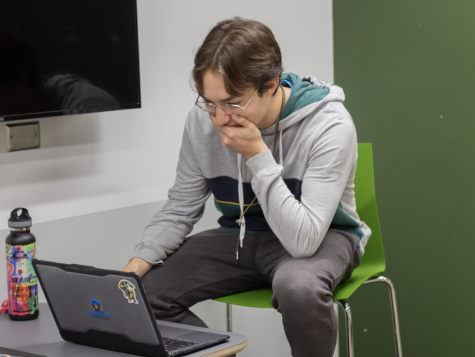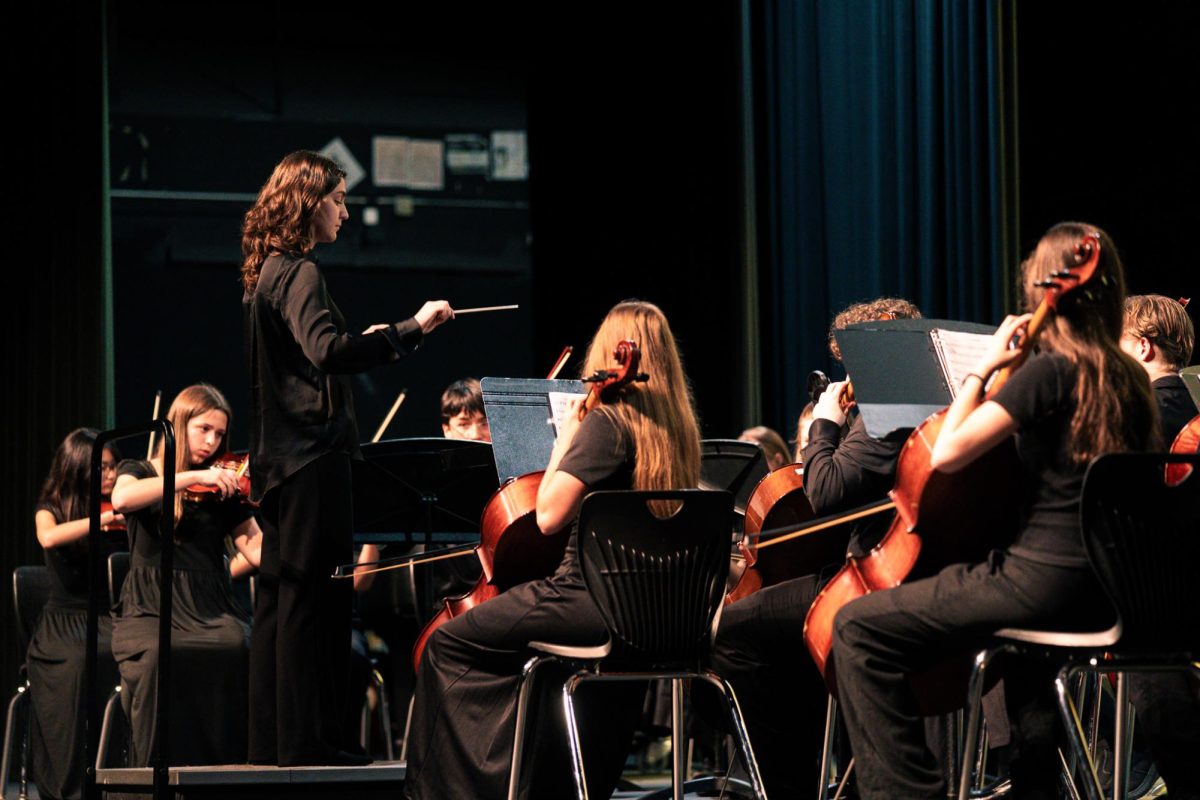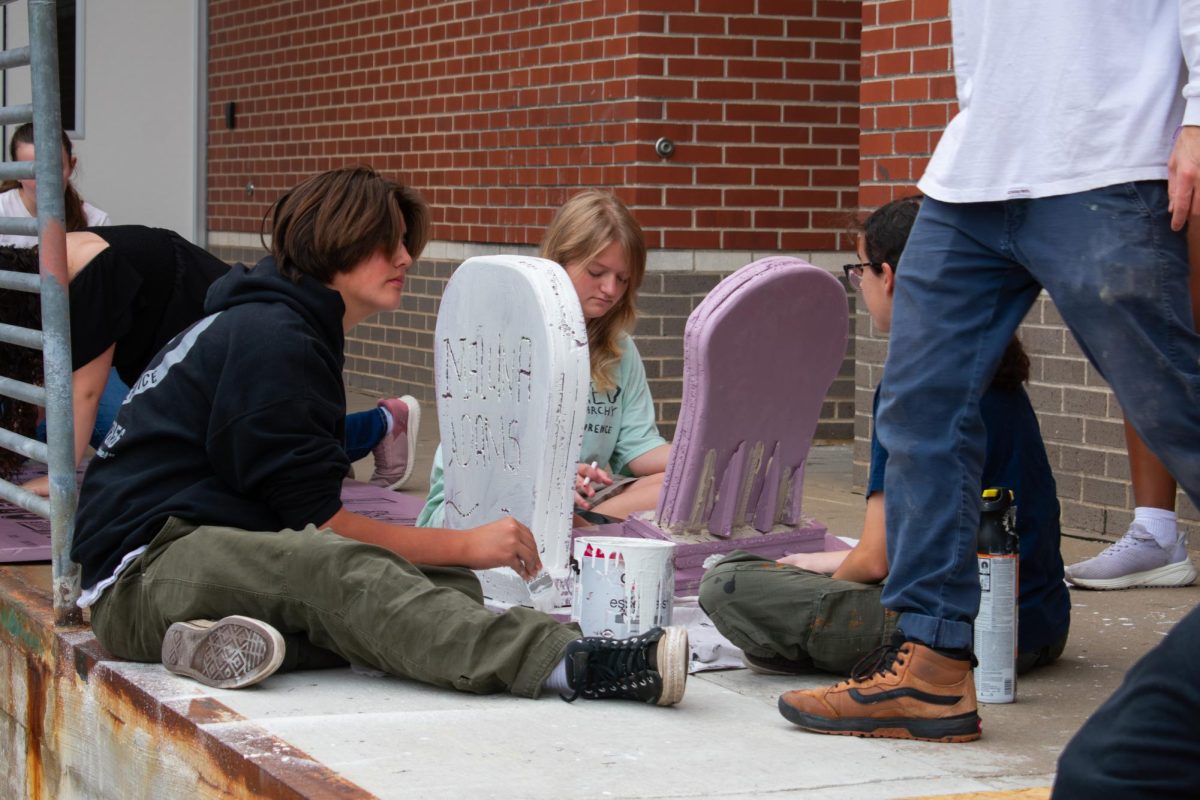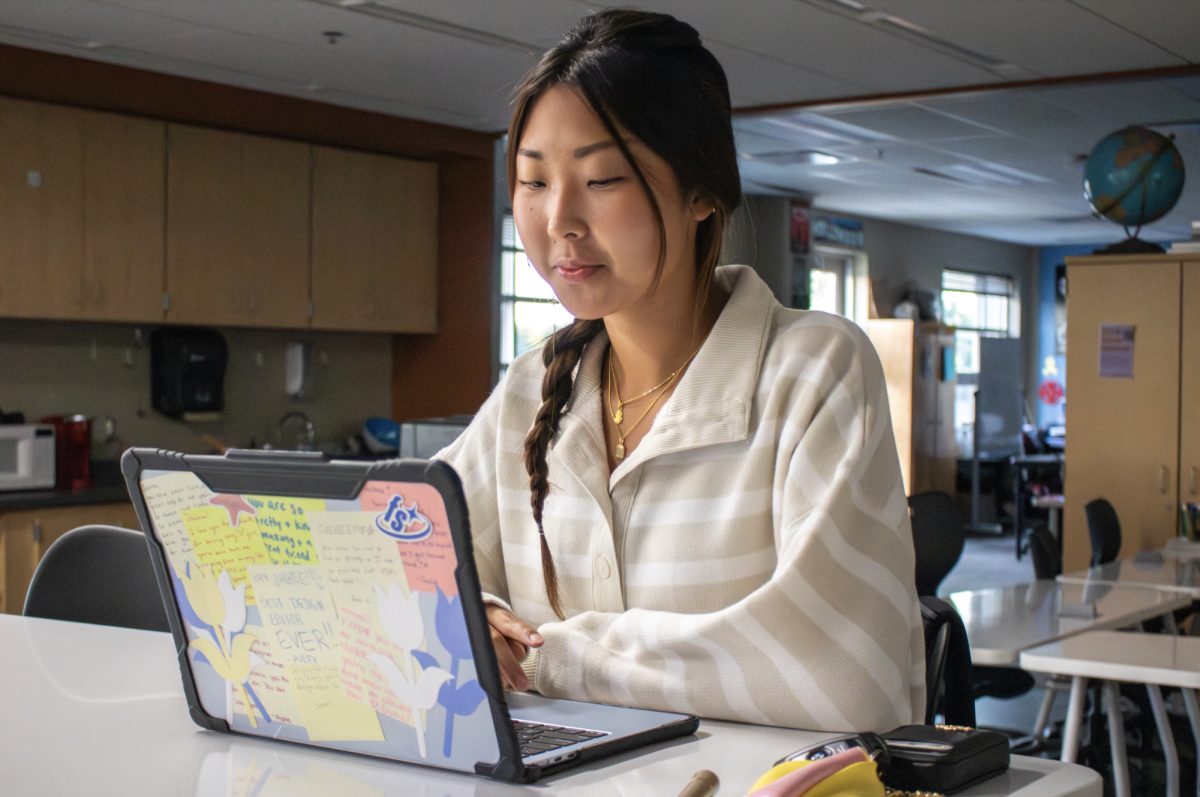FEATURE: Midterms Stress
Options for student body to combat midterm stress with studying
Working on AP Calculus BC homework, sophomore Anwen Williams refers back to the previous lesson. Among other classes she took, Williams said that calculus was one of her classes she was most stressed about. “In calculus class,[test grades] are weighted as 10% of your grade, so it can increase or decrease your grade by about anywhere from two to five points,” Williams said.
November 26, 2022

Semester finals are fast approaching and the end of year finals won’t be far behind. The average student will take 3-4 finals in the first semester and 6-8 in the second semester finals can account for up to 20 percent of a student’s grade in a class. While finals are supposed to be a summation of your knowledge, they can also be a major source of stress for some students.
“[Students] are definitely more stressed because if you’re in harder classes, or if you have a lot on your plate, it can be really hard to study and review for [finals] which leaves you at a loss kind of,“ senior Tyler Callagy said.
Some students have tried coping with anxiety by studying for the upcoming exams. Tutoring for math, english, and science is offered by respective teachers after school in the library.
“It’s very helpful for the people who want to go,” senior Gus Cordova said. “If someone really wants to better themselves academically, they will take that extra step for themselves to do after school extracurricular.”
The school year is full of activities, however it’s important to take the time to prepare for midterms, and to regulate your own stress and anxiety.
“Finals are stressful for students,” math teacher Alyssa Barrett said. “There’s also a side of it that they can be proud of themselves and kind of give them confidence that they’ve learned so much over the course of semester.”


![Working on AP Calculus BC homework, sophomore Anwen Williams refers back to the previous lesson. Among other classes she took, Williams said that calculus was one of her classes she was most stressed about. “In calculus class,[test grades] are weighted as 10% of your grade, so it can increase or decrease your grade by about anywhere from two to five points,” Williams said.](https://www.fsfreepressonline.com/wp-content/uploads/2022/11/Screen-Shot-2022-11-26-at-3.39.34-PM-900x667.png)




